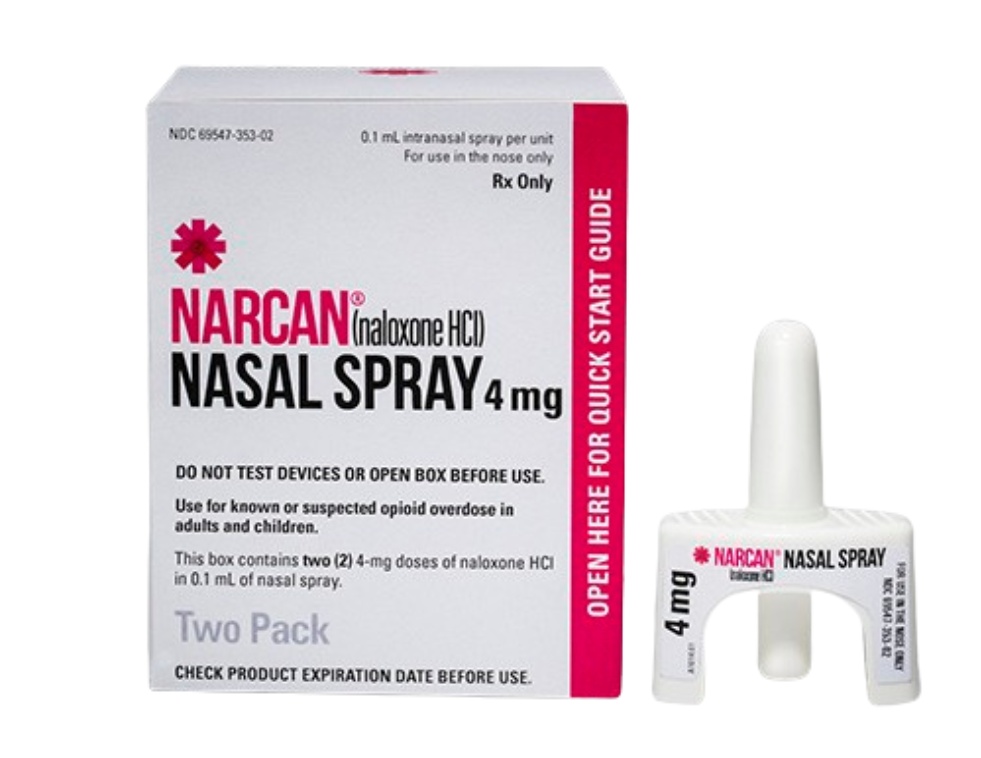Does Naloxone Have Side Effects on Liver Function?

Does Naloxone Have Side Effects on Liver Function?
When it comes to treating opioid overdoses, Naloxone stands as a crucial and widely - used medication. Its ability to rapidly reverse the life - threatening effects of opioid drugs has saved countless lives. However, as with any medication, concerns about potential side effects persist, especially regarding its impact on vital organs like the liver. For patients and healthcare providers alike, understanding whether Naloxone can affect liver function is essential for safe and effective use. Additionally, considering the cost aspects of this medication can further help patients and their families make informed decisions, as expenses related to treatment can vary and pose financial challenges.
1. Naloxone's Mechanism of Action
Naloxone, an opioid antagonist, works by specifically binding to opioid receptors in the body. When opioids such as heroin, fentanyl, or prescription painkillers are overdosed, they bind to these receptors and suppress the central nervous system, leading to dangerous symptoms like slowed breathing and loss of consciousness. Naloxone blocks these receptors, effectively reversing the effects of opioids. By doing so, it quickly restores normal respiratory function and helps patients regain consciousness. This unique mechanism makes Naloxone a cornerstone in emergency medicine for handling opioid - related emergencies.
2. The Relationship Between Naloxone and the Liver
The liver plays a significant role in the body's processing of medications, and Naloxone is no exception. Naloxone is primarily metabolized in the liver, where liver enzymes break it down into inactive metabolites. This means that the efficiency of Naloxone's metabolism and elimination from the body depends on the health of the liver. In patients with normal liver function, Naloxone is generally well - tolerated, and the body can process it without major issues. However, for those with pre - existing liver damage, such as patients with hepatitis or cirrhosis, the situation becomes more complex. Their impaired liver function might affect how Naloxone is metabolized, potentially leading to unexpected reactions or an increased risk of side effects.
3. Clinical Research and Evidence
Currently, the body of clinical research specifically focused on the impact of Naloxone on liver function is somewhat limited. The majority of studies indicate that short - term use of Naloxone, which is common in emergency overdose situations, typically does not cause obvious toxic reactions in the liver. For example, in numerous emergency room settings where Naloxone is administered to reverse opioid overdoses, liver function tests in the following days often show no significant abnormalities.
Nevertheless, some individual case reports have raised concerns. In rare instances, long - term or high - dose use of Naloxone has been associated with elevated liver enzyme levels. Elevated liver enzymes can be an indicator of liver stress or damage. But it's important to note that these cases are few and far between, and more comprehensive research is needed to fully understand the relationship between Naloxone use and liver function. Overall, assessing the effect of Naloxone on the liver requires considering each patient's specific medical condition, dosage, and duration of use.
4. Cost Considerations
The cost of Naloxone can vary depending on several factors, including the form of the medication (such as injection or nasal spray), the brand, and the place of purchase. For individuals and families, especially those who may require repeated use due to ongoing issues with opioid use, these costs can add up and become a financial burden. If you have concerns about the cost of Naloxone, you can consult 丁香客服. They may be able to provide information on cost - saving options, such as generic versions, patient assistance programs, or insurance coverage details.
5. Usage Recommendations and Precautions
For patients with known liver impairments or those who are taking other medications that might be toxic to the liver, healthcare providers need to carefully evaluate the risks before administering Naloxone. A thorough medical history review and an assessment of current liver function, through tests like measuring liver enzymes (such as alanine transaminase - ALT and aspartate transaminase - AST), are advisable steps.
During Naloxone treatment, especially for extended periods or in high doses, regular monitoring of liver function is recommended. This can involve periodic blood tests to check for any changes in liver enzyme levels. If any abnormalities are detected, the healthcare team can then decide whether adjustments to the Naloxone dosage or alternative treatment strategies are necessary.
Case Q&A
Q: My family member has a history of hepatitis C and recently had an opioid overdose. The doctors administered Naloxone. Should we be worried about his liver?
A: Given his history of hepatitis C, there is a need for extra caution. While most short - term Naloxone use in emergency situations doesn't usually cause immediate liver problems, his pre - existing liver condition means his liver might process the drug differently. The medical team will likely monitor his liver function closely by checking liver enzyme levels regularly in the coming days. If you have any concerns or notice any unusual symptoms like yellowing of the skin or eyes, dark urine, or abdominal pain, inform the healthcare providers immediately. You can also reach out to 丁香客服 for more information on what to expect and how to support his recovery.
Q: I'm a healthcare provider treating a patient who needs long - term Naloxone treatment for an opioid use disorder. How should I manage the potential impact on liver function?
A: Before starting long - term Naloxone, conduct a comprehensive assessment of the patient's liver health, including blood tests for liver enzymes and a review of their medical history for any signs of liver disease. Set up a schedule for regular liver function monitoring, perhaps every few months, to detect any early changes. If the patient's liver enzyme levels start to rise, discuss with a liver specialist. Depending on the situation, you might consider adjusting the Naloxone dosage, switching to an alternative treatment approach, or adding medications to support liver health. 丁香客服 can also be a valuable resource if you need additional guidance on treatment strategies or managing potential side effects.
Q: I had to use Naloxone nasal spray on my friend during an opioid overdose. I'm worried if this one - time use could harm his liver, especially since he drinks alcohol regularly.
A: A single use of Naloxone nasal spray in an emergency situation is unlikely to cause significant liver damage. However, his regular alcohol consumption does put additional stress on the liver. Alcohol can impair liver function over time, and if his liver is already somewhat compromised, it's a good idea for him to get his liver function checked during his next medical visit. Encourage him to seek help for his opioid and alcohol use issues. If you have more questions about Naloxone or related health concerns, 丁香客服 can offer more detailed information and support.
In conclusion, while there is no conclusive evidence that Naloxone directly causes liver damage, its impact on liver function cannot be completely ignored, especially in certain patient populations. By understanding its mechanism of action, considering individual patient factors, closely monitoring liver function when needed, and being aware of cost - related aspects, both healthcare providers and patients can use Naloxone more safely and effectively, minimizing potential risks to the liver.

